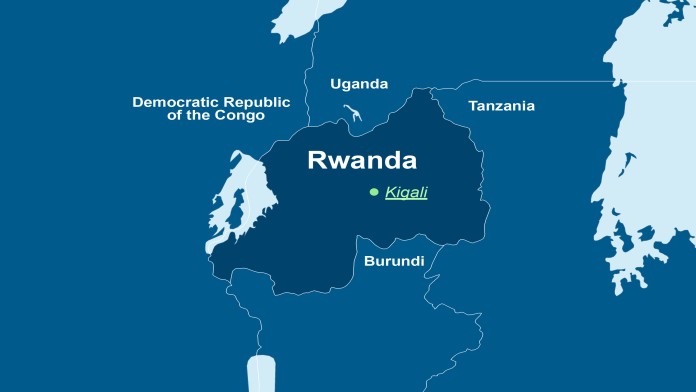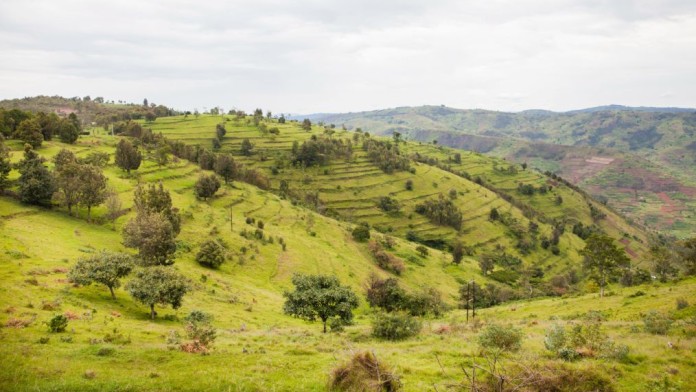
As of: 12/2022
Rwanda’s economy has an unbalanced trade balance. A lot is imported – both for investments and for consumption – and little is exported. Due to its geographical location, the country is heavily dependent on imports. The import share of gross domestic product (GDP) was 35.3% in 2020, while the export share was only 19%. Rwanda primarily exports traditional agricultural products such as coffee and tea and has few mineral resources such as coltan, tin ore, tungsten and gold. By opening new mines, they are given a key role in the export industry. But that alone is not enough for a stable economy. The aim is to diversify exports in order to become more independent of price fluctuations. Small and medium-sized enterprises (SMEs) that are export-oriented play a key role in this. KfW supports them on behalf of the German Federal Government with attractive promotional and loan offers.

The small export share of GDP has several causes. Besides high transport costs, poor knowledge of the export business and insufficient access by companies to adequate financing instruments represent a particular obstacle to development.
As a result, Rwandan banks focus almost exclusively on large corporate customers. Small and medium-sized enterprises, on the other hand, are largely excluded from financial services.
This is because banks see a higher risk in loans for SMEs, as many of the small businesses have not existed for long, so their creditworthiness has not yet been proven. As a result, financial service providers either do not offer them loans or only loans on terms that are not economically acceptable to companies because interest rates are too high and significant hedging is required.
Accordingly, the implementation of a sustained refinancing mechanism is an important step towards promoting SMEs and therefore also towards diversifying and increasing export performance.
KfW’s “Export Growth Facility” (EGF) project aims to improve the range of needs-based financial services for growth- and export-oriented SMEs in Rwanda.
The project partner Development Bank of Rwanda (BRD) grants loans to selected partner financial institutions from funds provided by KfW on behalf of the German Federal Government. The financial institutions use these funds to grant loans to growth-oriented and export-oriented SMEs.
The project aims to actively expand and strengthen the target group through appropriate measures to be able to ensure successful loan applications with the on-lending banks. Banks generally rate SME risks as high. Since the target group frequently does not have sufficient collateral, the Rwandan government is currently preparing to set up a credit guarantee fund with the support of KfW. This is intended to serve as a mechanism for reducing credit risks. Such hedging would enhance banks’ willingness to lend to exporting SMEs.
KfW is actively trying to accelerate the implementation of the project at many levels. However, the challenging economic structure of Rwanda and the low number of exporters will mean that little is expected to change in the short term. Change can only be achieved through a long transformation process supported by the Rwandan government.
The project was scaled up again in 2020 against the backdrop of the COVID-19 pandemic and the project’s positive impact on exporting SMEs.
In the meantime, five Rwandan banks have made use of the facility at the BRD promoted by KfW. Together, these five banks account for more than 60% of Rwanda’s credit market and also generate around 60% of the banking market’s profits. This means that the facility is now very strongly anchored in the market.
With the help of advice from German Development Cooperation, other companies are able to prepare the necessary documents for a loan with the partner banks themselves.
The BRD has acquired the necessary knowledge to independently implement monitoring and risk management as well as the assessment of environmental and social standards when granting loans.
The project contributes to the diversification of the financial sector in Rwanda. This is an important element in ensuring the economic stability and development of the country. Small and medium-sized enterprises can expand their activities through loan financing or can continue to operate despite the effects of the pandemic. This secures and creates jobs.
The project contributes to the achievement of these following United Nations Sustainable Development Goals:
KfW Group
KfW Development Bank
West African Agriculture, Water and Biodiversity
KfW Office Kigali
11, Avenue de Kiyovu, Kigali